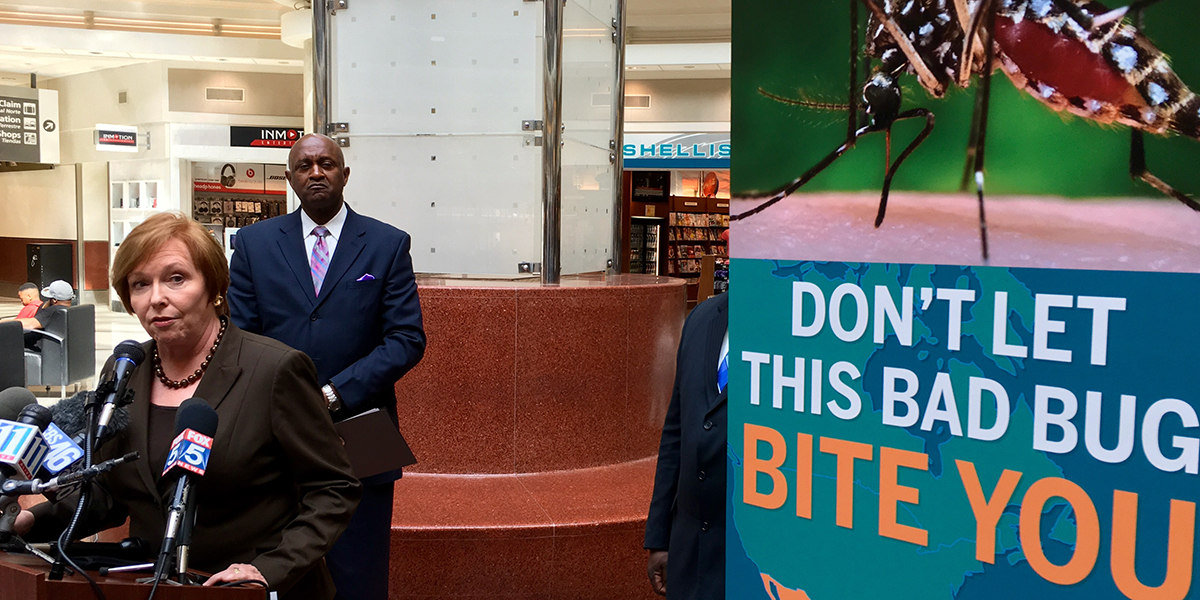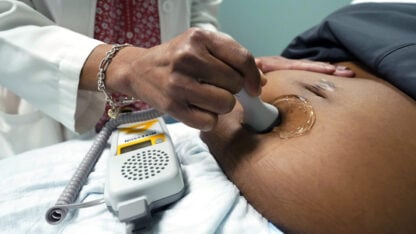Atlanta Airport To Stock Bug Spray Amid Growing Zika Fears

Georgia officials are trying to warn travelers flying through Atlanta’s Hartsfield-Jackson International Airport to protect themselves against the Zika virus in an effort to stop its spread in the U.S.
State Department of Public Health Commissioner Brenda Fitzgerald said the airport’s shops will offer bug sprays with the recommended level of the active insect repellent, DEET. Airport officials say 3-ounce bottles of bug spray will be available for purchase before security, and that travelers can buy larger-sized bottles after security.
Fitzgerald said it’s important that the bug spray contain 20 to 30 percent DEET.
“Not all of the insect repellents are sufficiently strong to protect someone from a mosquito bite,” she said. “What’s been so wonderful about working with the Atlanta airport is they made sure the products they’re stocking are absolutely the correct ones.”
Fitzgerald said travelers to the affected areas, which includes much of Central and South America, as well as the Caribbean Islands, should wear bug spray not just during travel but also three weeks after returning.
“We know that after you are bitten by the mosquito it probably is five to seven days until you develop symptoms. And we know that after you develop symptoms it is positive in your blood for five to seven days,” she said. “And then we gave it an extra week protection because we don’t know a lot about this mosquito.”
DPH said travelers should stay in places with air conditioning or window and door screens. It also suggested travelers wear protective clothing, like long-sleeved shirts, long pants and socks.
Hartsfield-Jackson General Manager Miguel Southwell said airport personnel will post signs in the terminals telling people where to buy bug spray. The airport will also air video messages on TVs at the flight gates to inform people about the disease.
The mosquito-born Zika virus has been linked to thousands of cases of the birth defect microcephaly. It’s also been tied to the neurological disorder Guillain-Barre syndrome.
The outbreak, first identified in Brazil, comes as many across the world prepare to travel to the country for the 2016 Olympics.
Health officials say the disease is most commonly spread through infected mosquitos, but there’s evidence the disease can also be transmitted through sexual intercourse.
DPH said pregnant women should not travel to the countries flagged by the Centers for Disease Control and Prevention. Male sex partners who have traveled or are traveling to the region should use a condom during sex. The agency said couples who are expecting should also use condoms until the baby is born.
Fitzgerald said there have been 11 Zika cases so far in Georgia, all travel related, and none in pregnant women.








